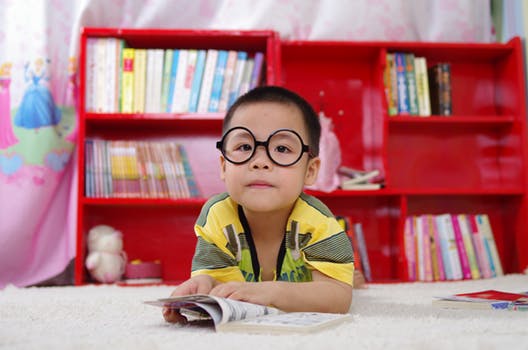Child Discipline is a course of action in which parents fix the incorrect behavior of a child into better skills. Disciplines are made to have a positive environment at home as well as outside the home. The aim behind this should be to inculcate positive choices in kids working which in turn will give them success and of course make them a better human being.
Why is child discipline important?
- When parents discipline their child, the child becomes more responsible, honest, and kind.
- Child discipline could be positive or negative. The positive discipline gives a child love and affection without harming their mental state whereas a negative one can give them spank or shout which will result in bad parenting or bad behavior.
- The parents should always choose effective child discipline methods to discipline their children as a loving relationship, provide positive reinforcement and reduce undesirable behavior from both sides.
Implementation of positive child discipline
To apply child discipline methods, the parents should help their kids with three R’s:
- Routine
- Reason
- Respect
The three R’s of child discipline is a learned behavior. It will be called for practice and repetition in your everyday life.
To improve your kids’ discipline, test out these proven methods for gaining better control. This process will help you to build good habits, reduce bad ones, and improve your control by making simple changes to your day to day routine. Augmented discipline will allow you to live a healthy lifestyle by helping you to make healthy choices, not emotional ones. Give it a shot. Your happiness will thank you for it.
The three R’s of child discipline
1. Routine
Routine can help you and your child understand the value of time and time management. It will help children to have a regular chore. Routine can also help in building up the relationship. Routine can establish habits like brushing your teeth and hair, having meals on time or completing the work, etc.
The proper planner of doing things in a day can have better results and kids can channelize their energy in a more appropriate manner.
Always schedule your kids’ activities, give them breaks in between and treat them with rewards. The rewards should be hugs and kisses rather than a toy or a candy. Try to give them reward socially because they are more powerful and successful.
2. Remove ENTICEMENT
Abstaining behavior is often easiest, “out of vision, out of the head.” Removing all temptations and distractions from your environment is a crucial first step when working to improve and bring positive child discipline.
If you are trying to have better control of your child’s eating, toss the junk food. If you want to improve your child’s focus while working, reduce screen time, turn off the cell phone and remove the clutter from the desk.
If you’re really having trouble in removing temptations from your kid’s life, have the Self-Control app on your computer to block these distraction websites – Facebook, Youtube, even e-mail – for a set of period of time.
First set yourself up for success by discarding the bad influences then fix your child. The child might misbehave when you do so but ignore the misbehavior. It will take away your attention and will result in minimizing the happenings of tantrums, whining, and interruptions.
3. Respect, Forgive and Move Forward
Applying something to your kids according to your wish won’t go always by the plan. Parents will have ups and downs or success or flat failures. The plan is to keep moving forward. When you have a failure just think why did you had and work upon it.
Focus on respect whether it’s giving or taking, kids learn from their parents. How parents behave in front of kids is important not how kids behave in front of parents -because you can correct them but they will only learn from you. Never fight with each other because kids are watching you. Respect yourself! Kids will learn to respect automatically. Never spank your child for wrong things rather alternate the plan. Adopt the policy of forgiving and forget.
Disciplining babies, toddlers, and pre-schoolers
Discipline is about teaching your child, so you have to be realistic with this approach.
Let’s understand it with some realistic examples-
How he or she will understand when you say to them “be patient”. Your 18 months old may have no idea what “patient” means. You have to show what do you mean by “being patient” like showing them how to wait for your turn when you play something instead of grabbing the whole game. And setting up rules and limits are different depending on the age of the child. Babies who are more than one year need physical limits like putting the potted plant out of reach. But more than the three-year-old child will need verbal limits such as “don’t touch that plant honey”.
So, when is the right time to start disciplining your child?
Kids can respond to positive discipline as young as 10 months of age. That’s about the time they start testing the waters to see if they can get away with things that you already say no to. You know the drill. Like when your child cruises over the dog food bowl to grab a snack but before he does, he looks at you with a little grin on his face that’s because you have already told him 10 times that it’s not okay. If your child is smart enough to figure this human behavior, he or she is more than ready to be disciplined for it.
- For babies, the best response is a redirection. Just removing the temptation, like removing the dog’s food, will reduce the number of times you need to say no. It’s also pretty easy to redirect the baby to another more appropriate activity like banging on some pots and pans with a wooden spoon.
- For toddlers give choices and consequences. Toddlers are all about control. So giving them chance to make decisions makes for fewer power struggles. Discipline moments give two choices both of which are things you want to do them anyway and if the toddler misbehaves, make his time fit the crime. For instance, if your toddler enjoys running away from you when he is outside, say you can play outside if you run here and there you might hurt yourself. Teach them the consequences.
- For pre-schoolers, catch them for being good and ignore the undesirable behavior. They aim to please and thrive on their parent’s attention so noticing good behavior will minimize that ugly attention seeking behavior and when your pre-schoolers start calling you a poo head or some other ore schooling cursing, ignore it. She or he will quit. But if you repeat those words they will say it again and again. Trust me!
It can be a real challenge to bring a disciplined child but you become a pro day by day and things get easy for you.
| Author: Richa AG | SAHM | Mommy Blogger |
“ESTABLISHING CHILD DISCIPLINE IS THE WORK OF EDUCATION. CHILDREN NEED DIRECTION MORE THAN SPEED”.
15 Most positive ways to teach Child Discipline
WISH YOU A VERY HAPPY AND DISCIPLINARY PARENTING!










